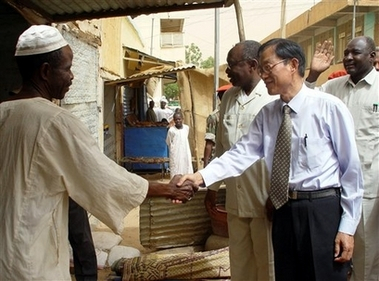
Informations pratiques
Thématiques et régions
Centres et programmes liés
Ceci est un événement réservé.
En savoir plus sur nos programmes de soutienTo discuss China's role in Africa, Ifri is pleased to welcome:
Chris Alden (London School of Economics) to provide a general overview of evolving China-Africa relations;
Daniel Large (School of Oriental and African Studies, University of London) to discuss China's presence in Sudan; and
Zhu Ming (Shanghai Institutes for International Studies) to speak on Sino-African ties and south-south cooperation in redesigning international institutions
Since the end of the 1990's, China's growing economic and diplomatic presence in Africa has attracted attention, as well as concern. In the West, many analysts and diplomats are critical of a Chinese "grand plan" whose effects would be to loot African natural resources and undermine efforts to promote democracy and good governance (as well as move western companies out of African markets, in sectors such as construction). This view is partly based on misperceptions, especially about the Chinese government's capacity (and willingness) to give directions to the multitude of Chinese organizations and individuals setting a foot in Africa.
And yet, Chinese policies in Africa have evolved. Now being an established power in Africa, China has gone through a learning process about the specificities of African contexts. This conference will discuss what this "normalization" of Chinese policies in Africa means.
Chaired by Vincent Darracq, Visiting Fellow, Ifri Africa Programme
Replay
Intervenants
Sujets liés
Autres événements

Sécurité collective et pivot américain : les enjeux de burden-shifting/burden-sharing en Europe
L’Ifri accueille l’amiral Pierre Vandier, Commandant suprême allié pour la transformation de l'OTAN, le 15 janvier 2026 à 9h30, à l’occasion d’un BBS consacré aux enjeux du burden-sharing.

André Beaufre, un stratège pour notre temps
Relire Beaufre aujourd’hui !
Le célèbre auteur d'Introduction à la Stratégie (1963), le général André Beaufre (1902-1975) n’a pas dit son dernier mot. Ses concepts-clefs demeurent pertinents.

L’économie européenne et ses entreprises face au risque géopolitique : approches croisées
Les tensions géopolitiques deviennent une contrainte et une source de risque majeure pour l’économie européenne et ses acteurs privés comme publics.










